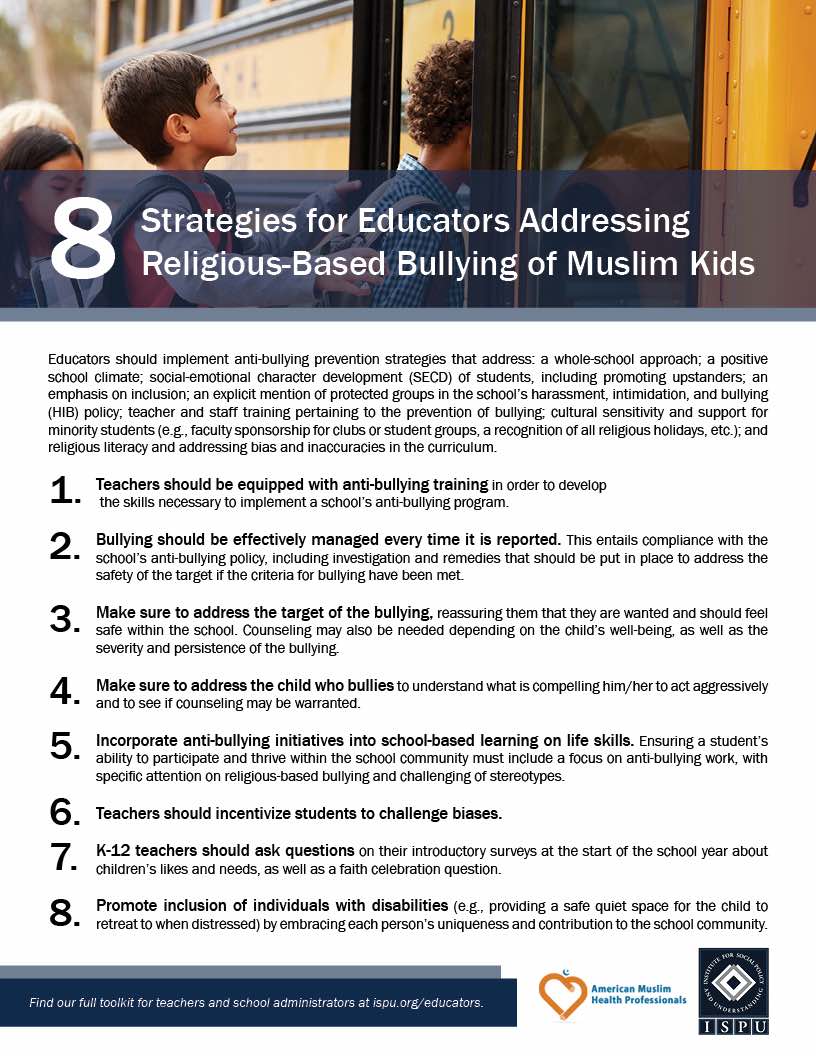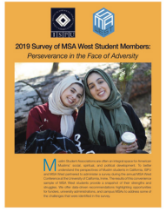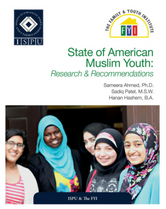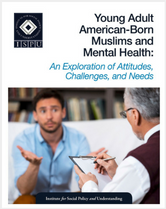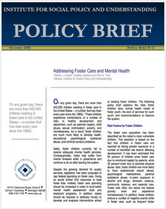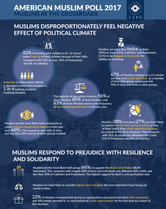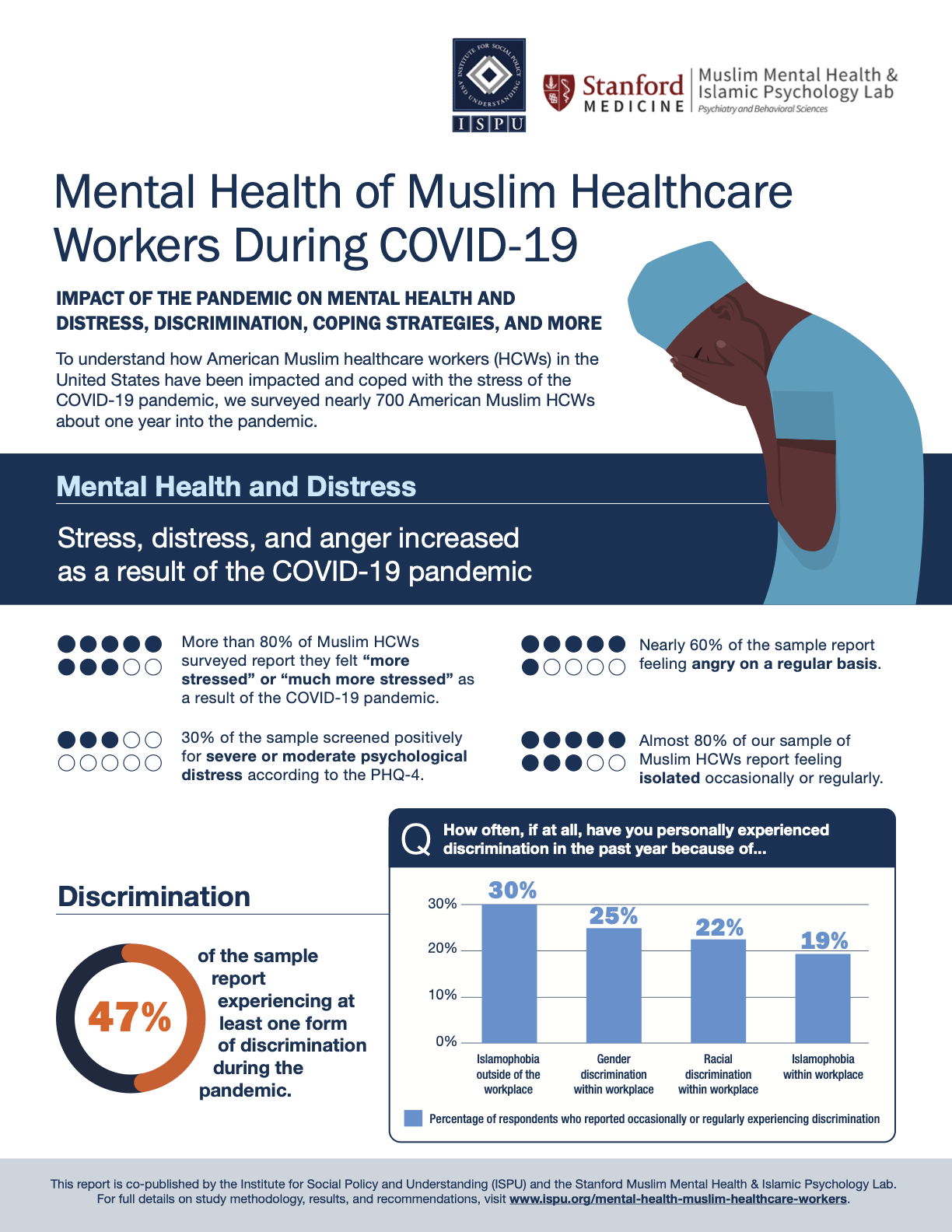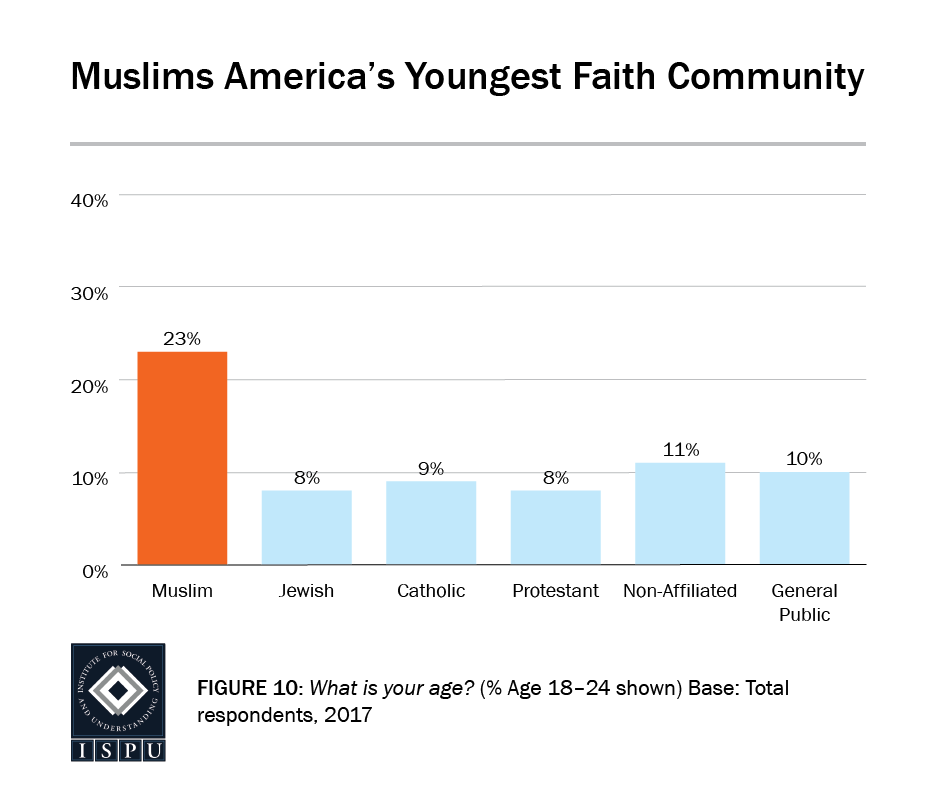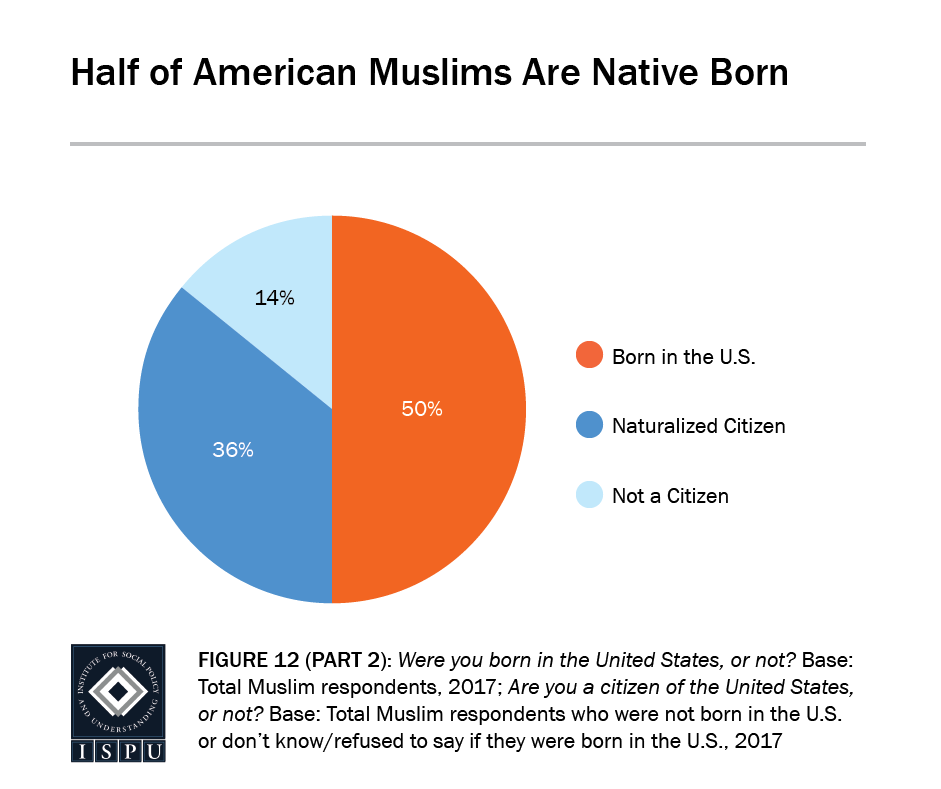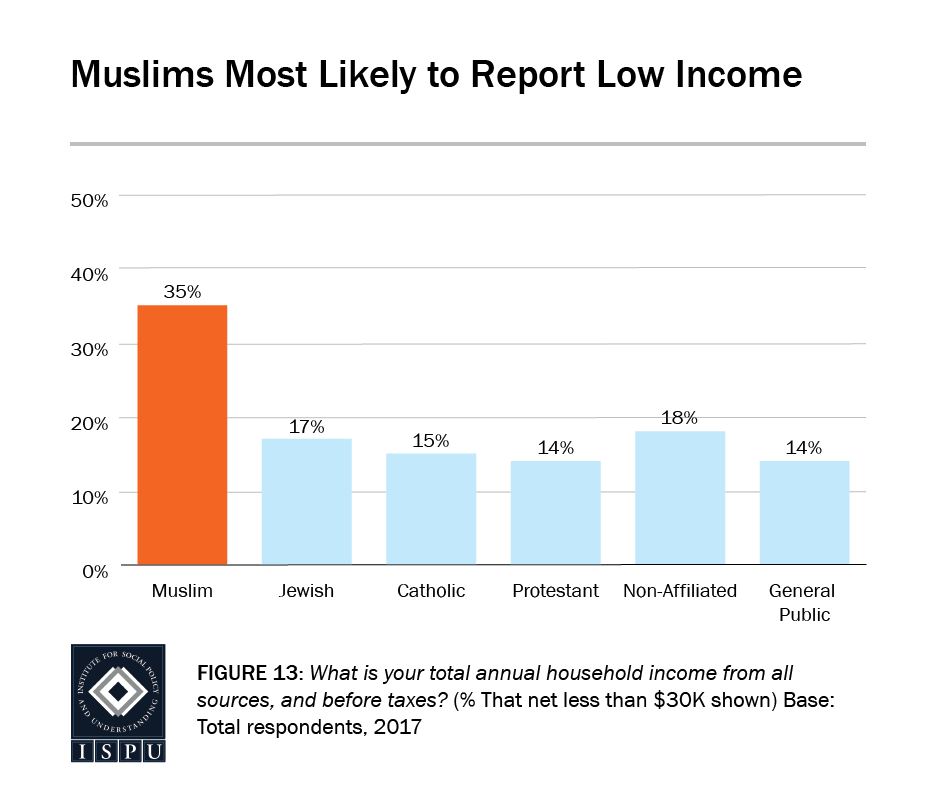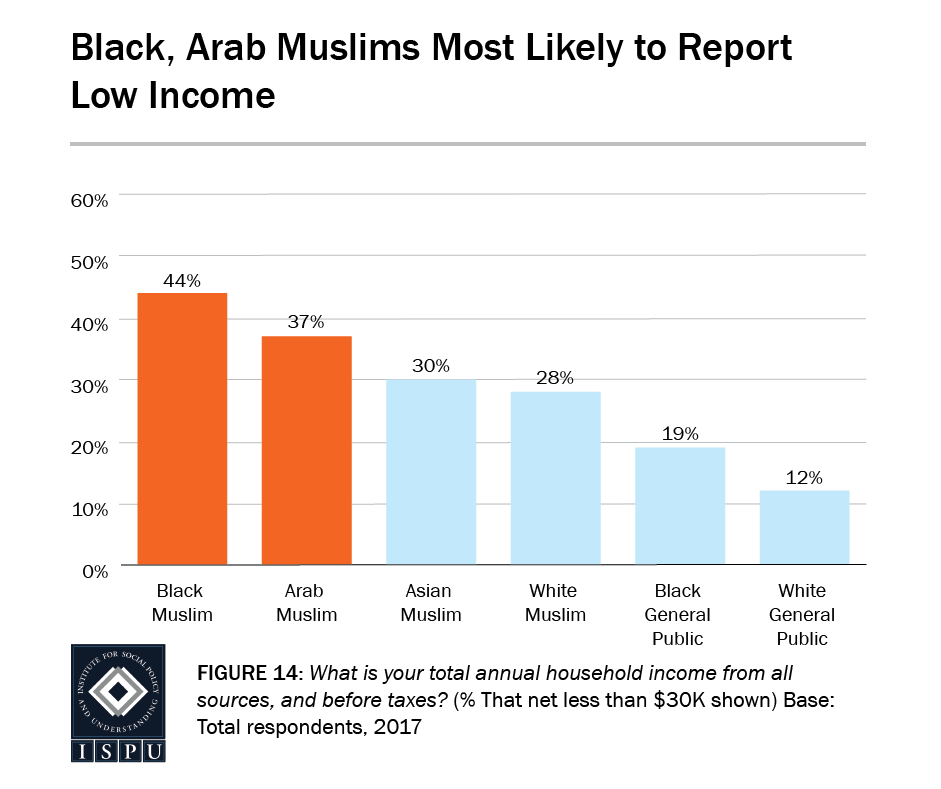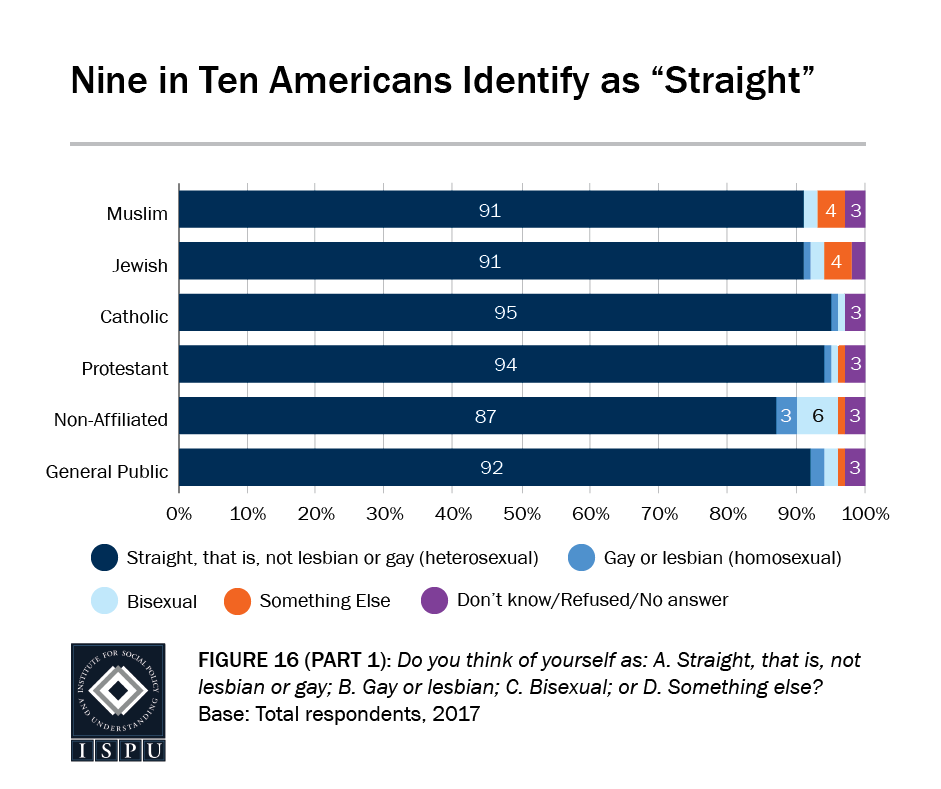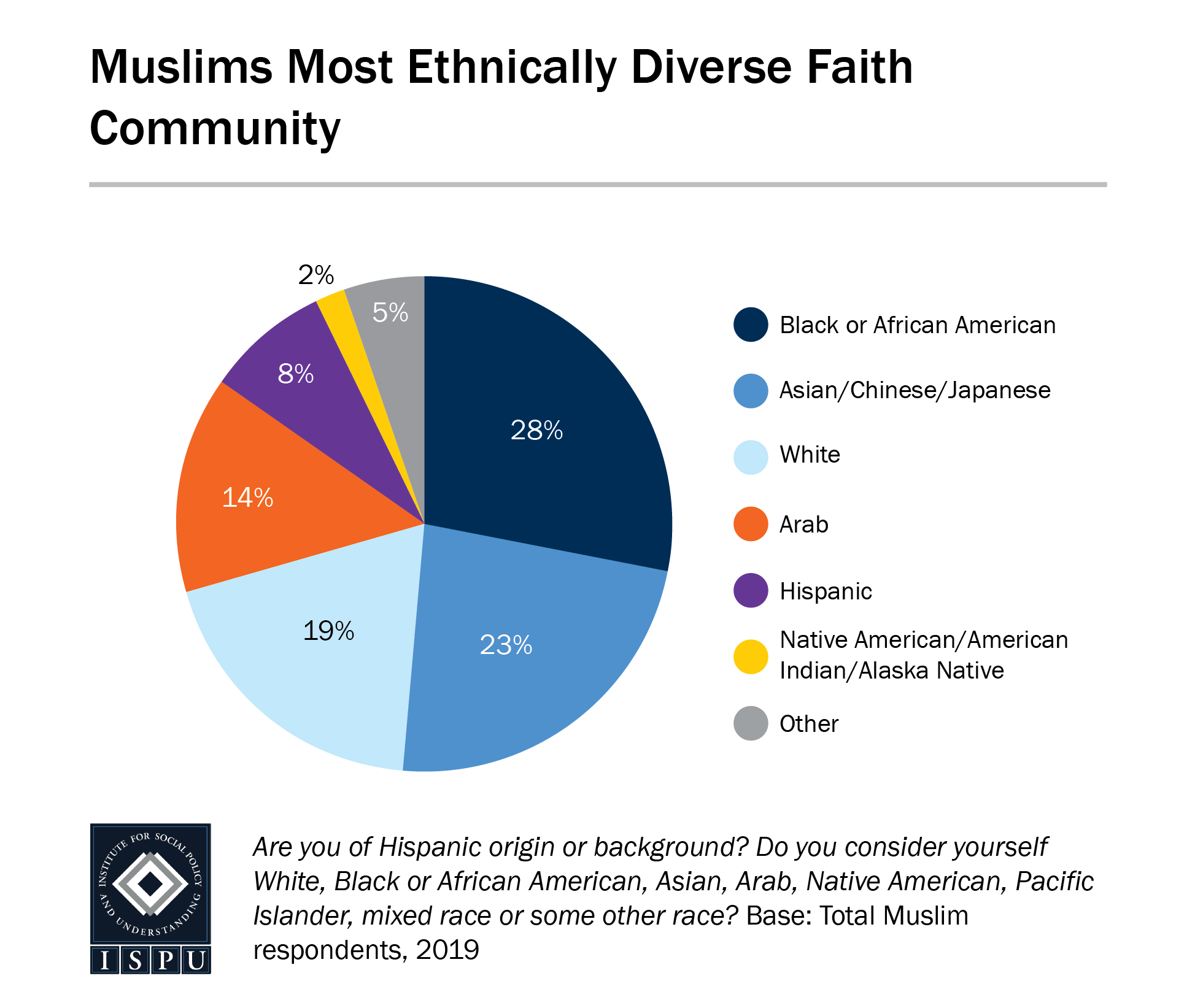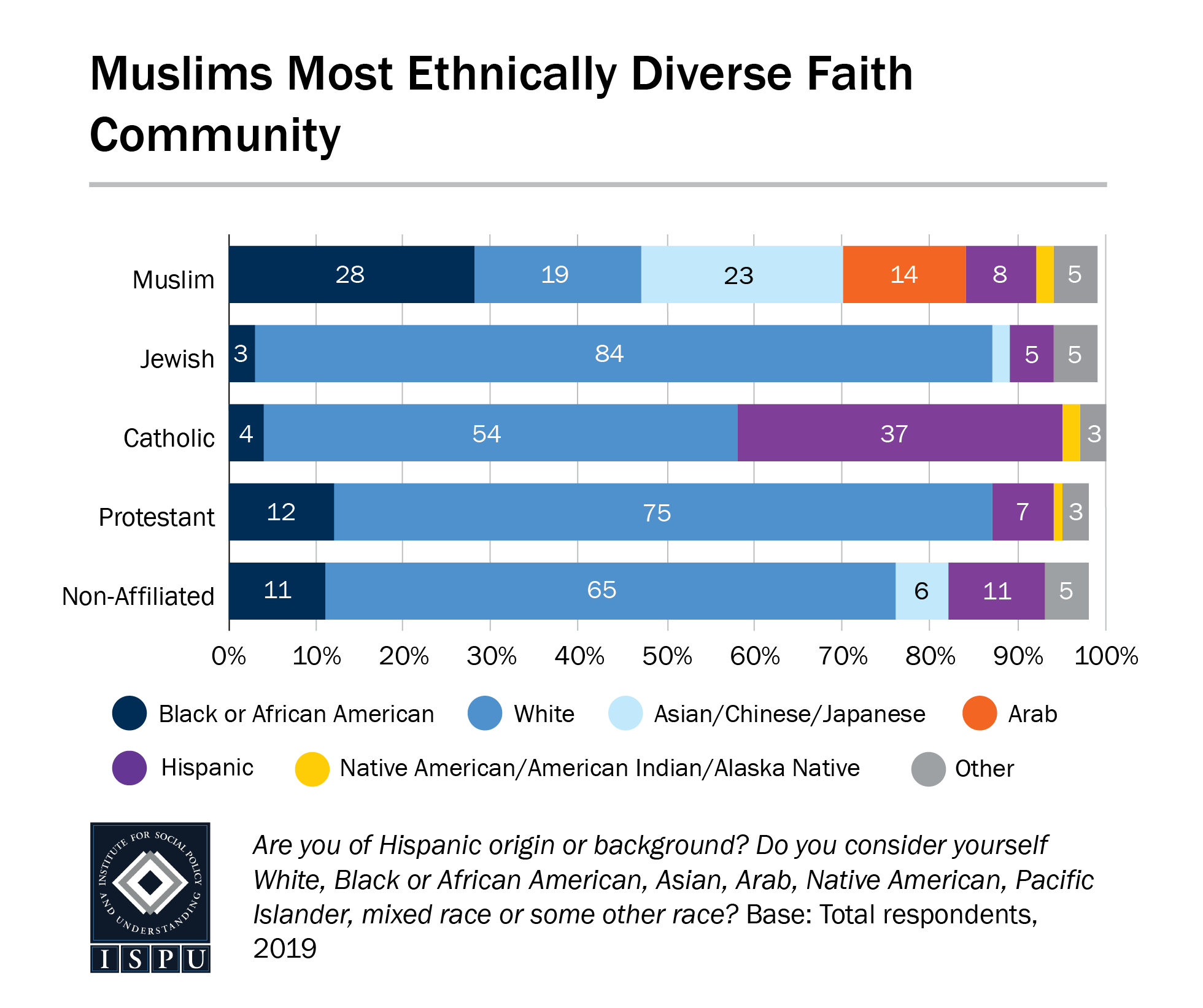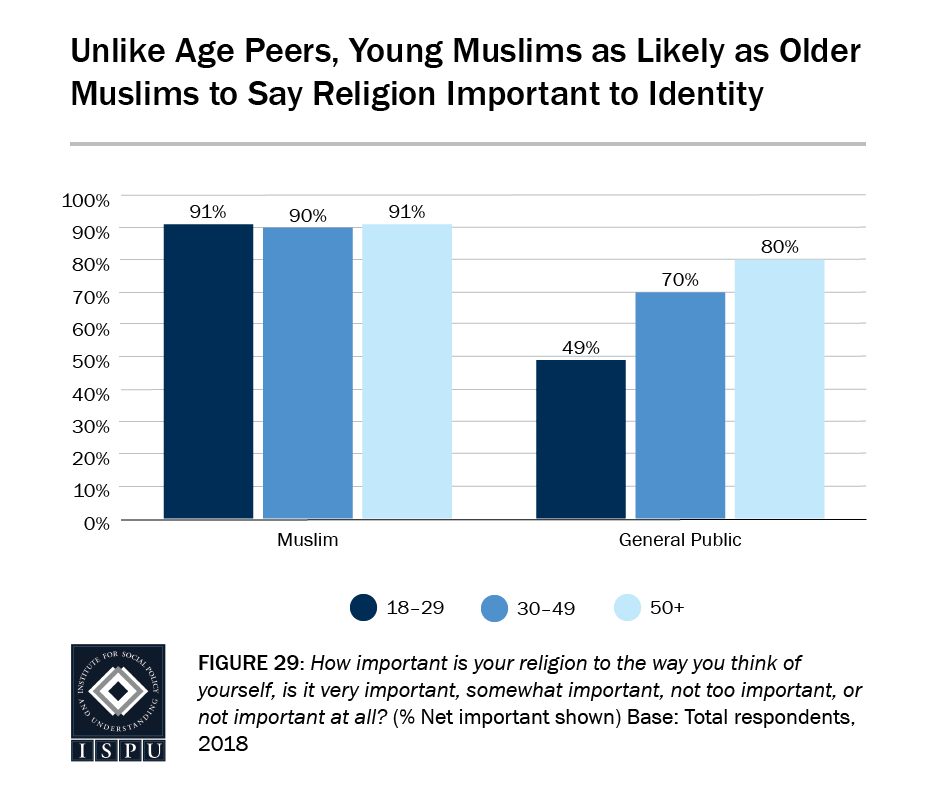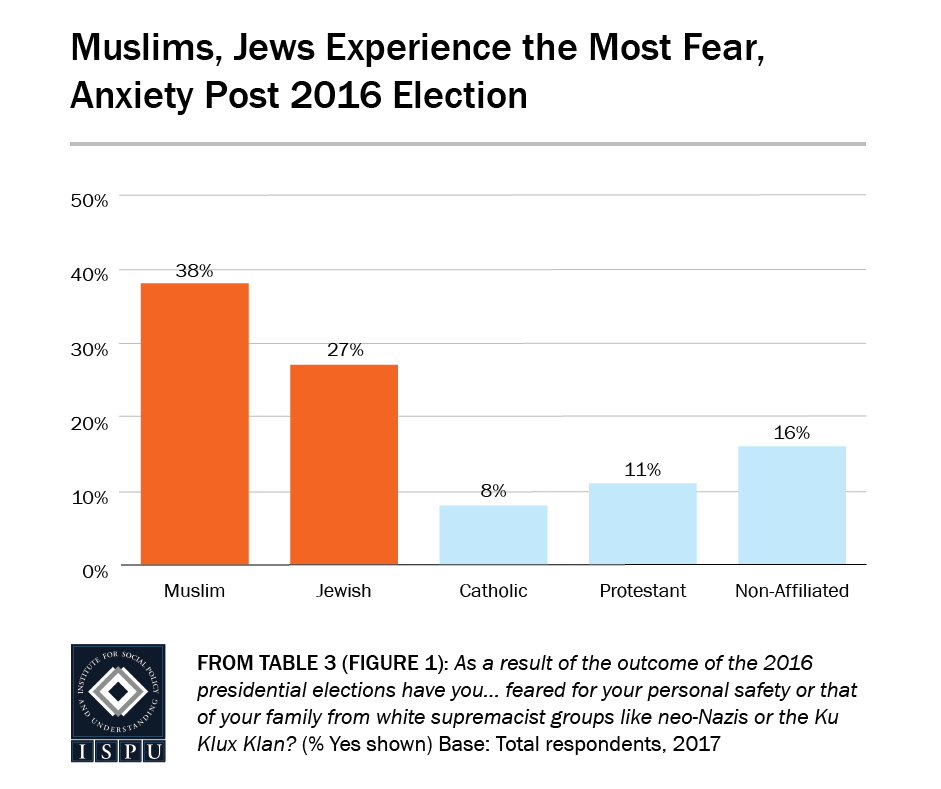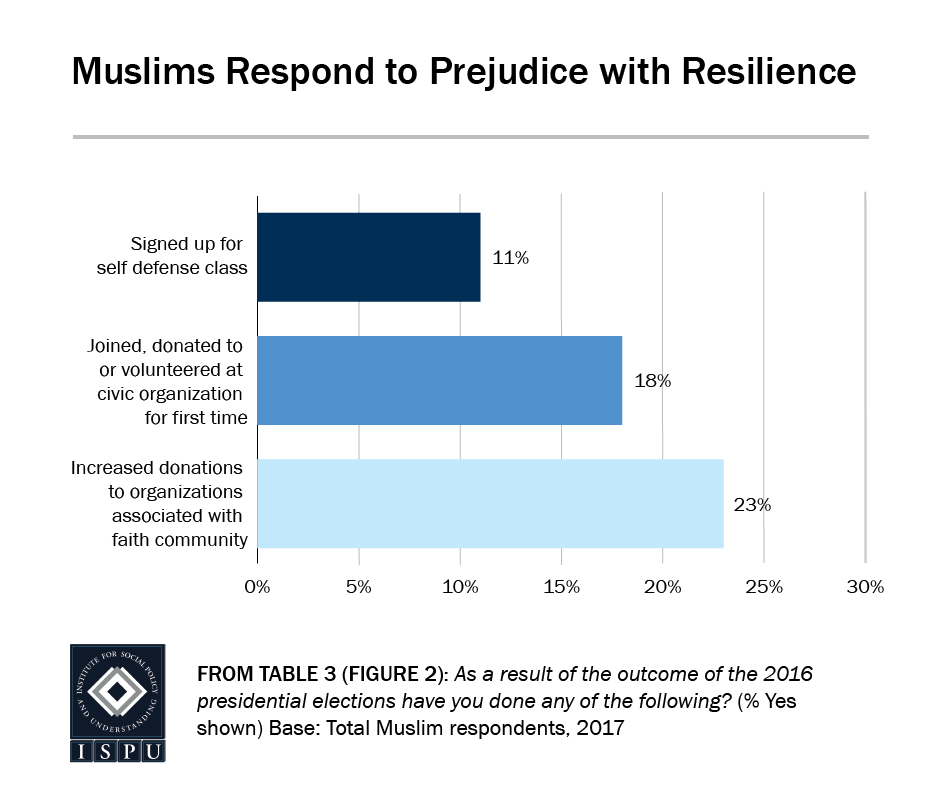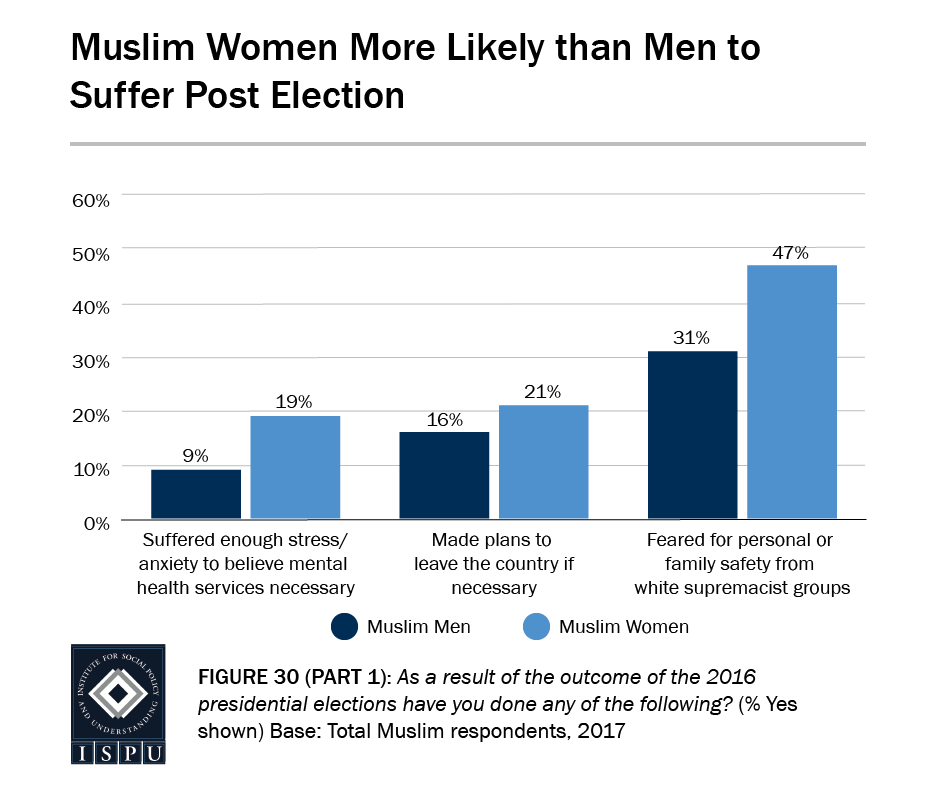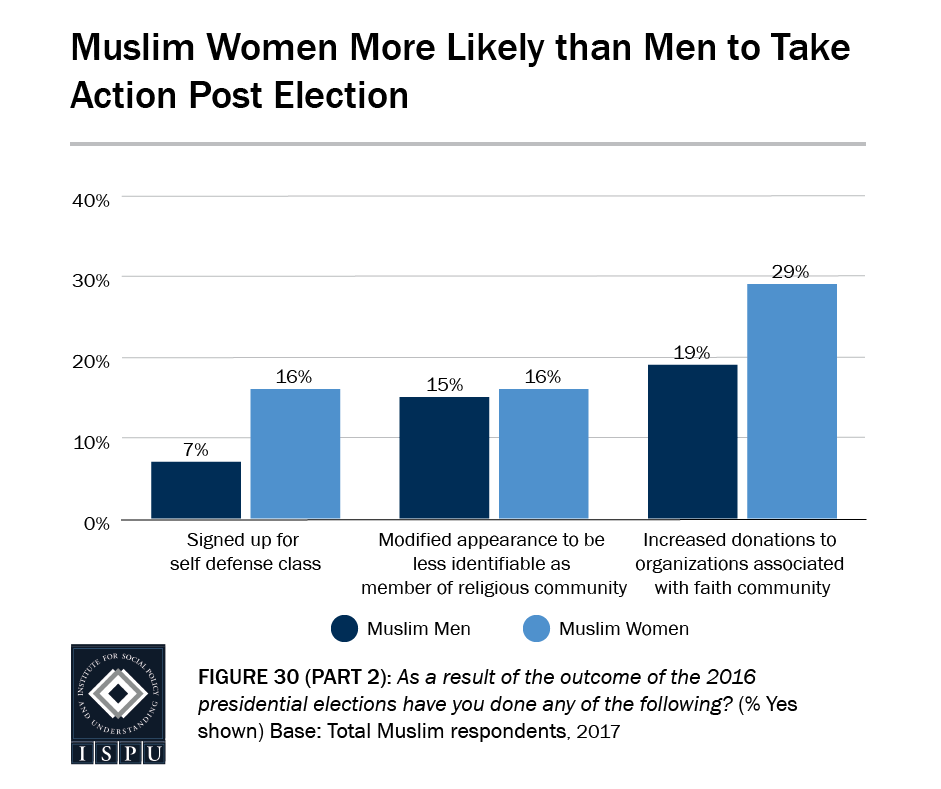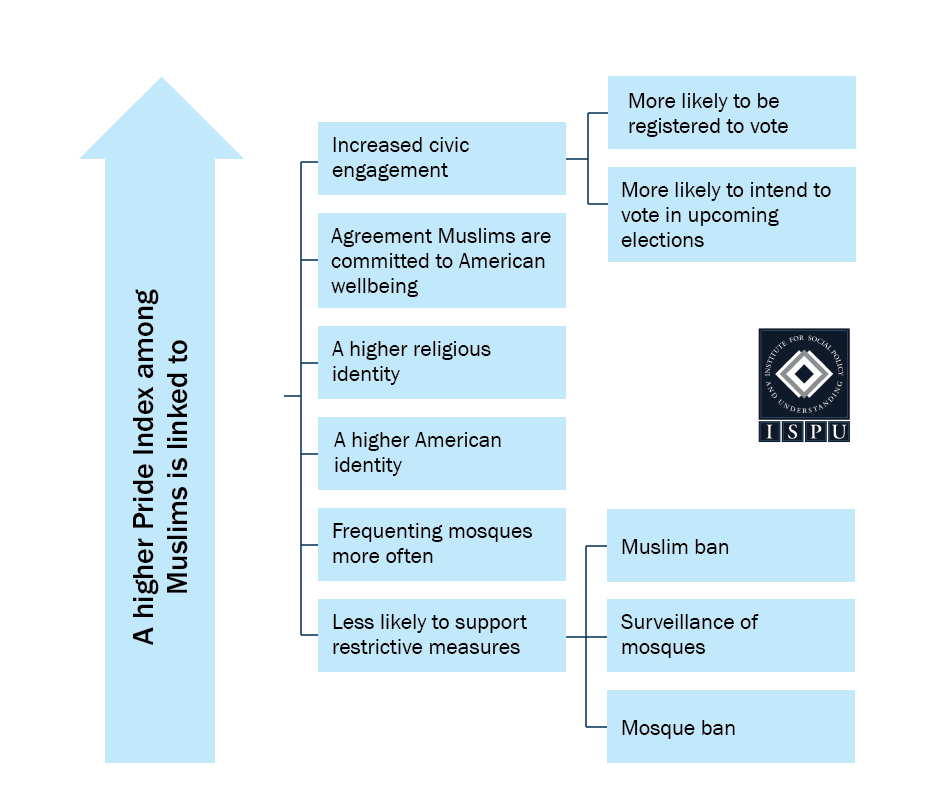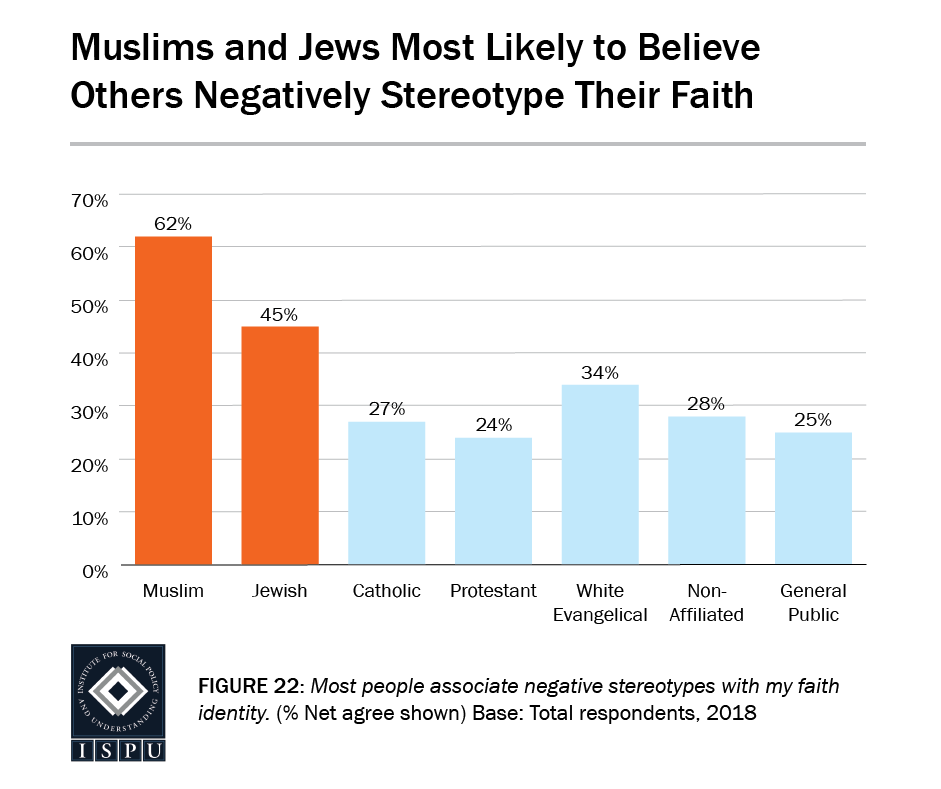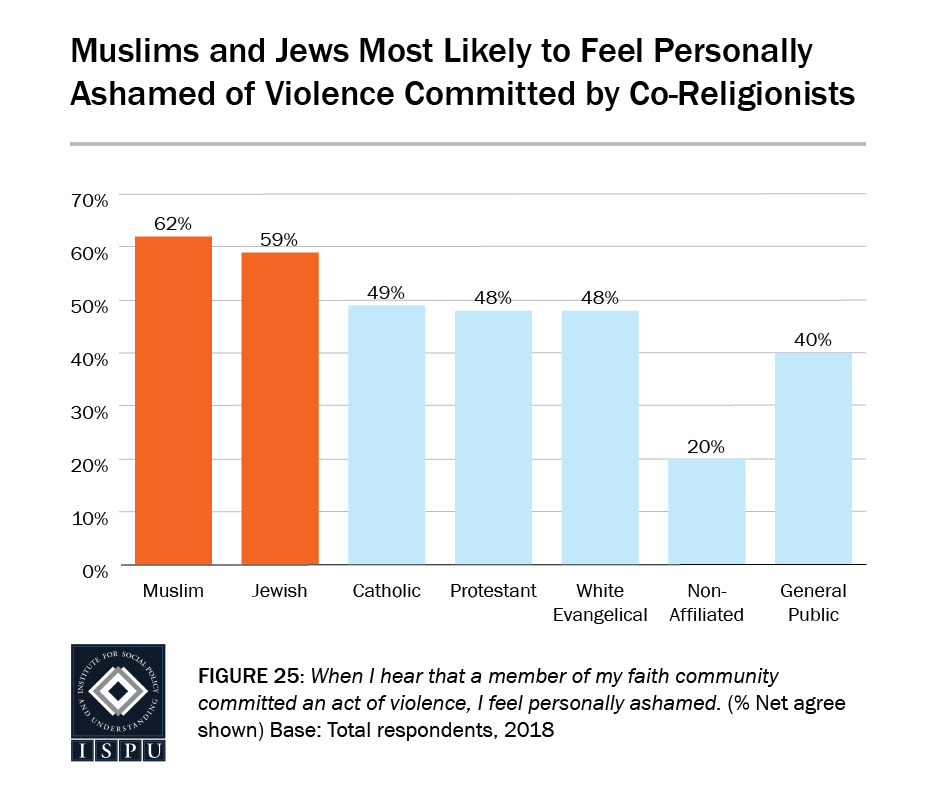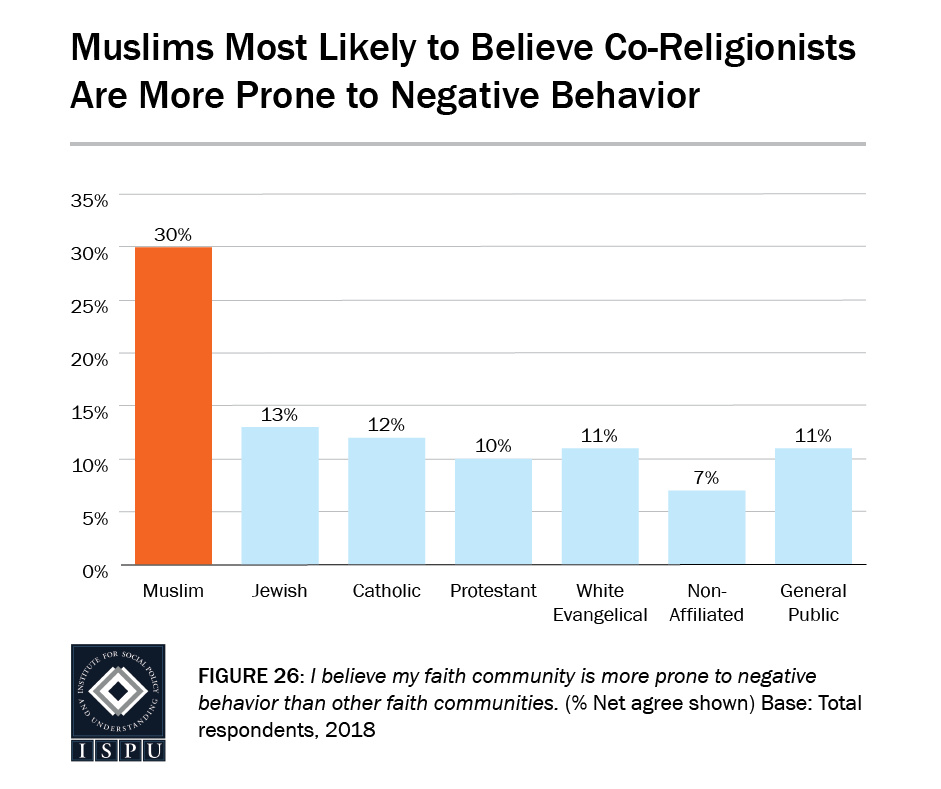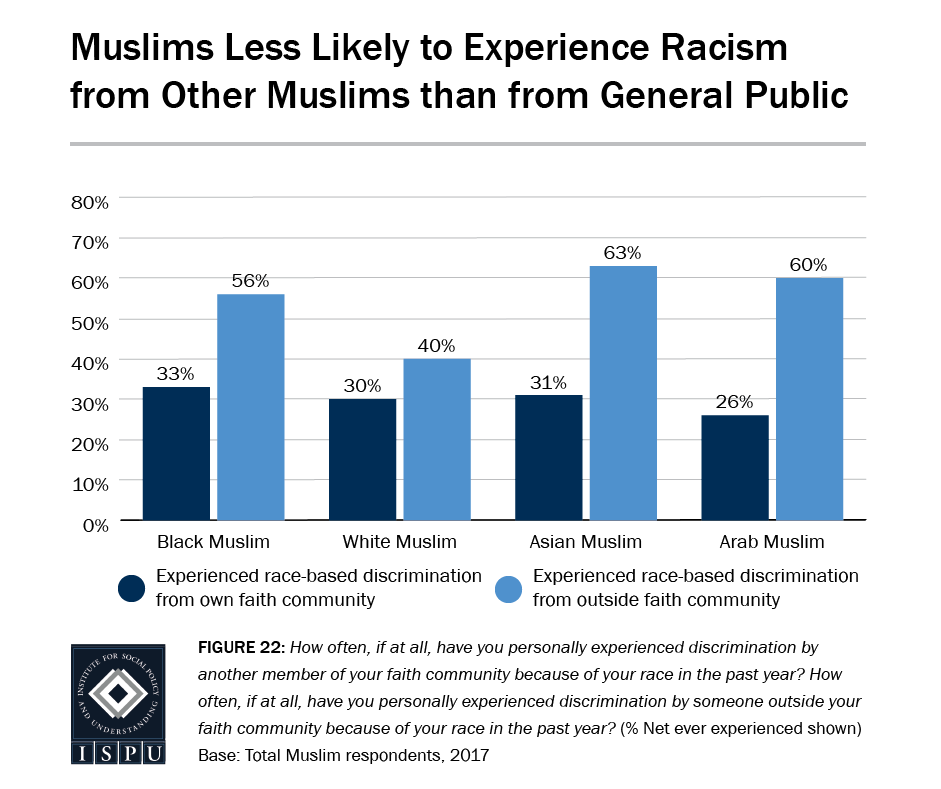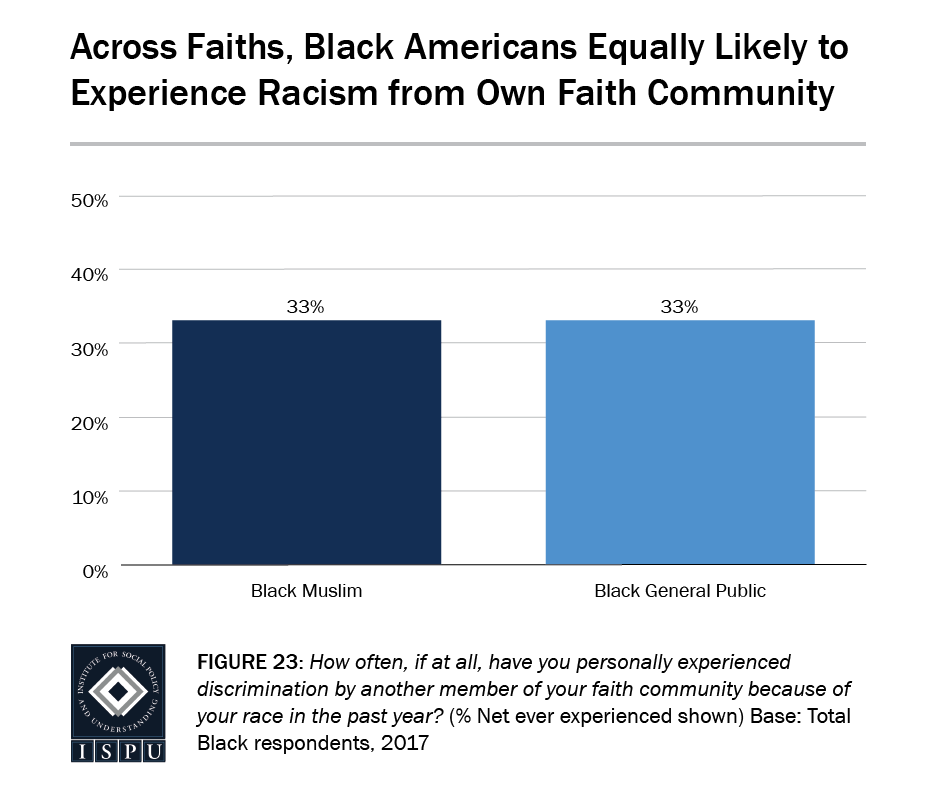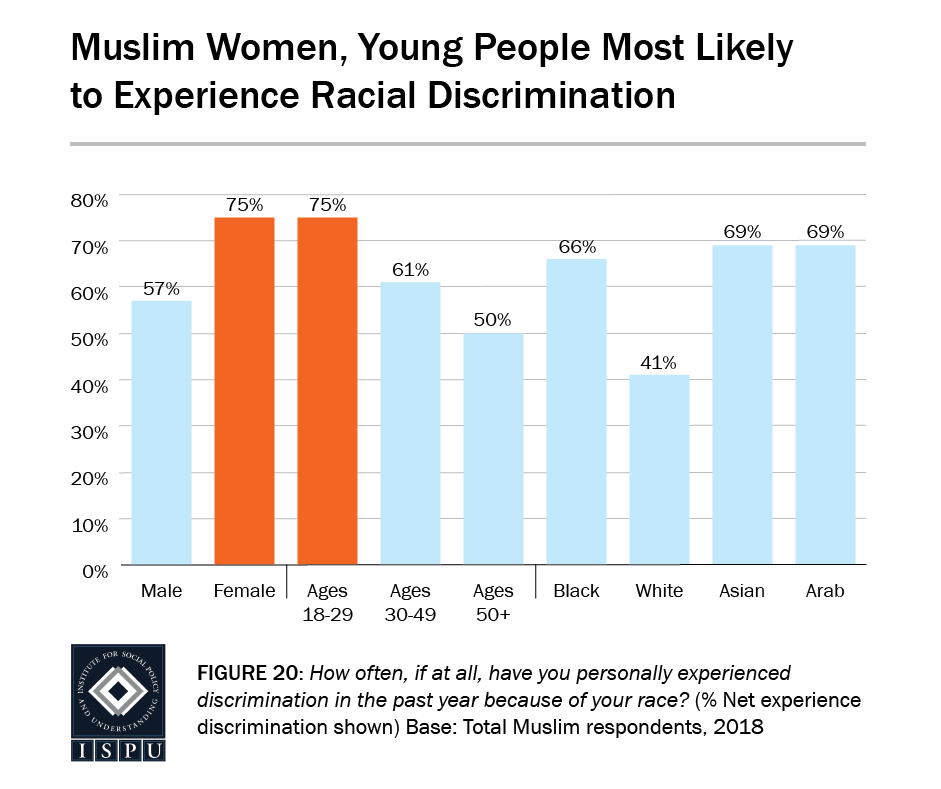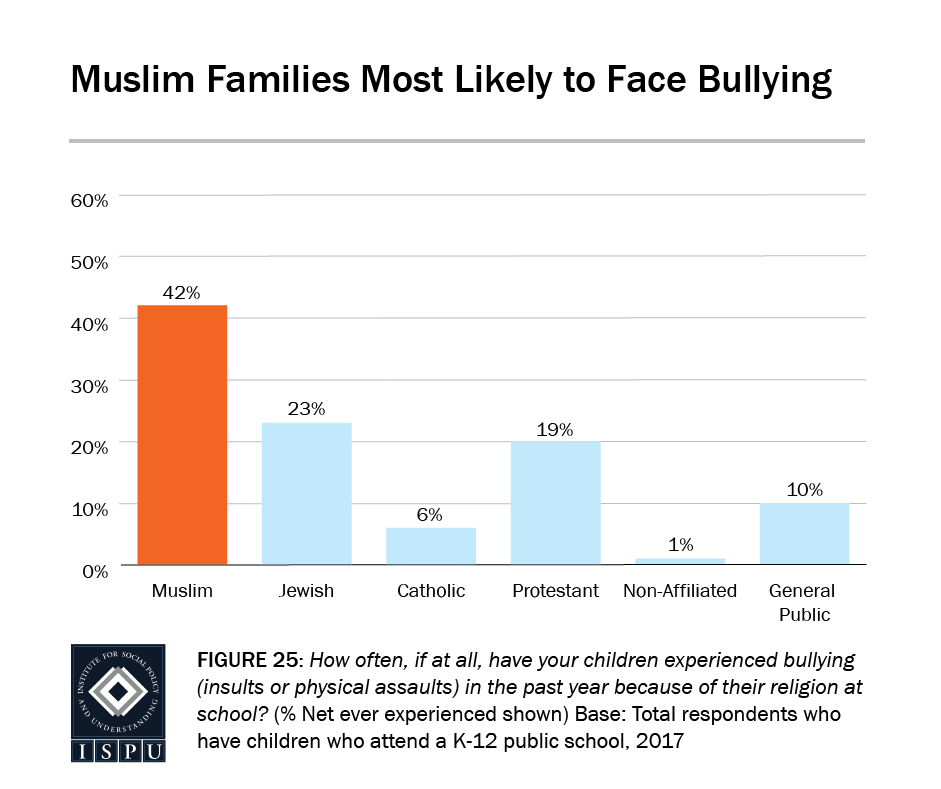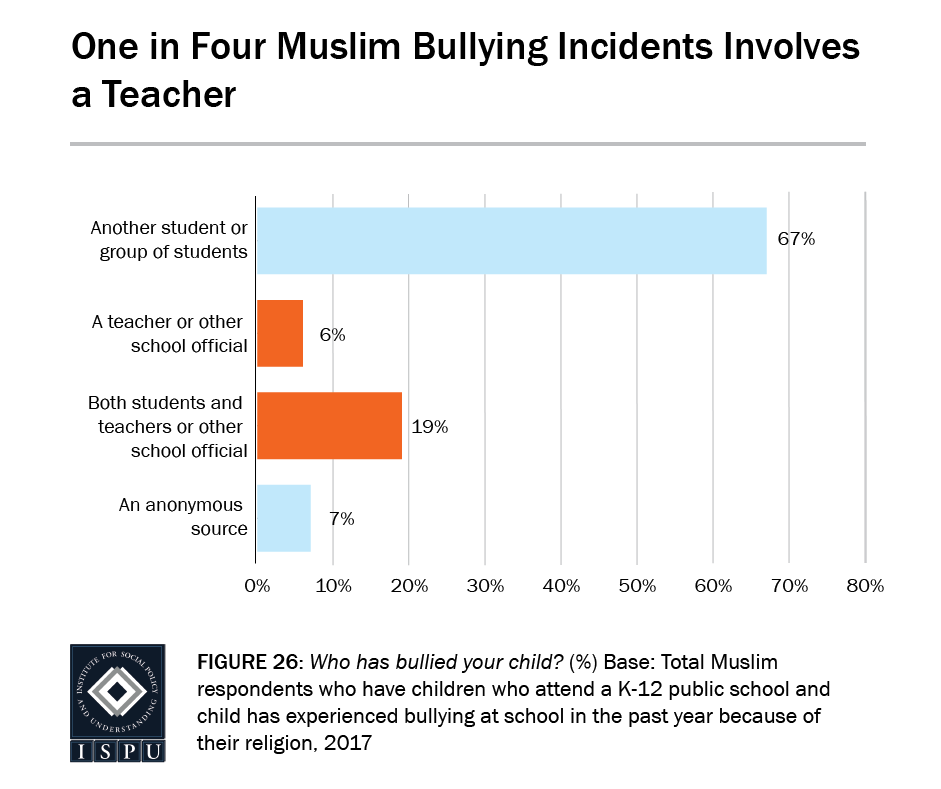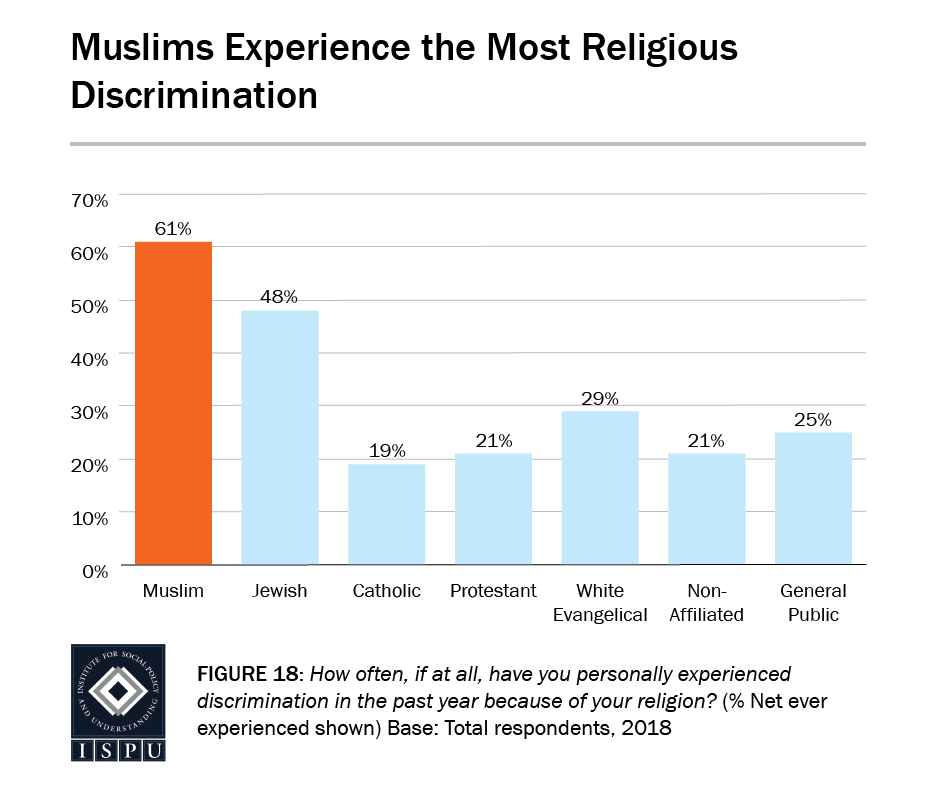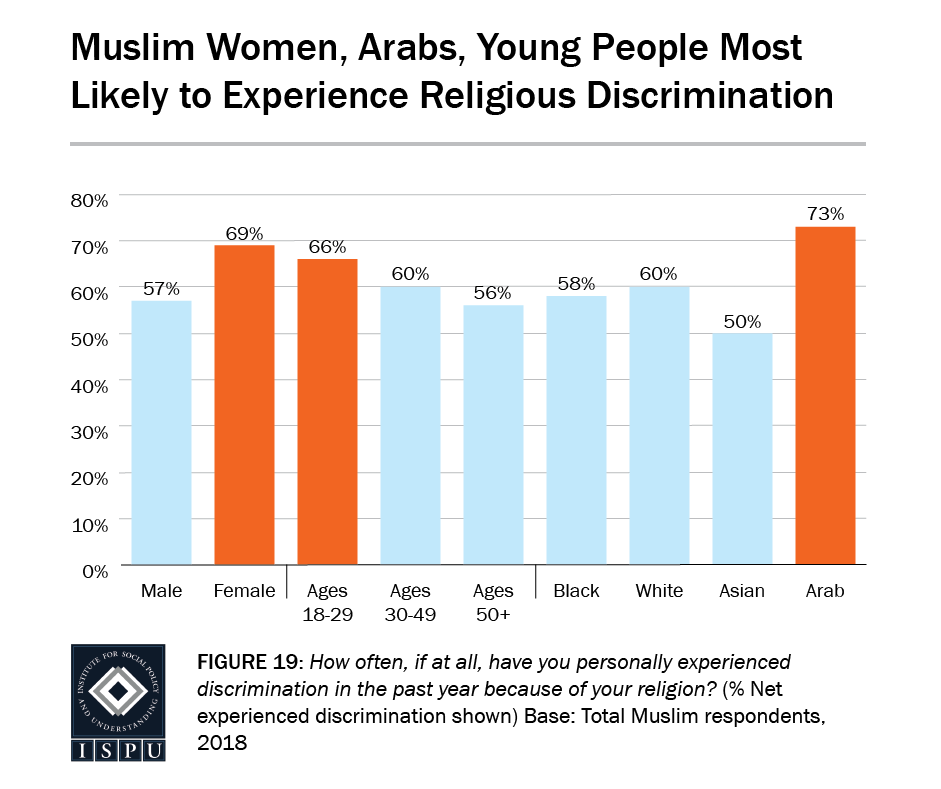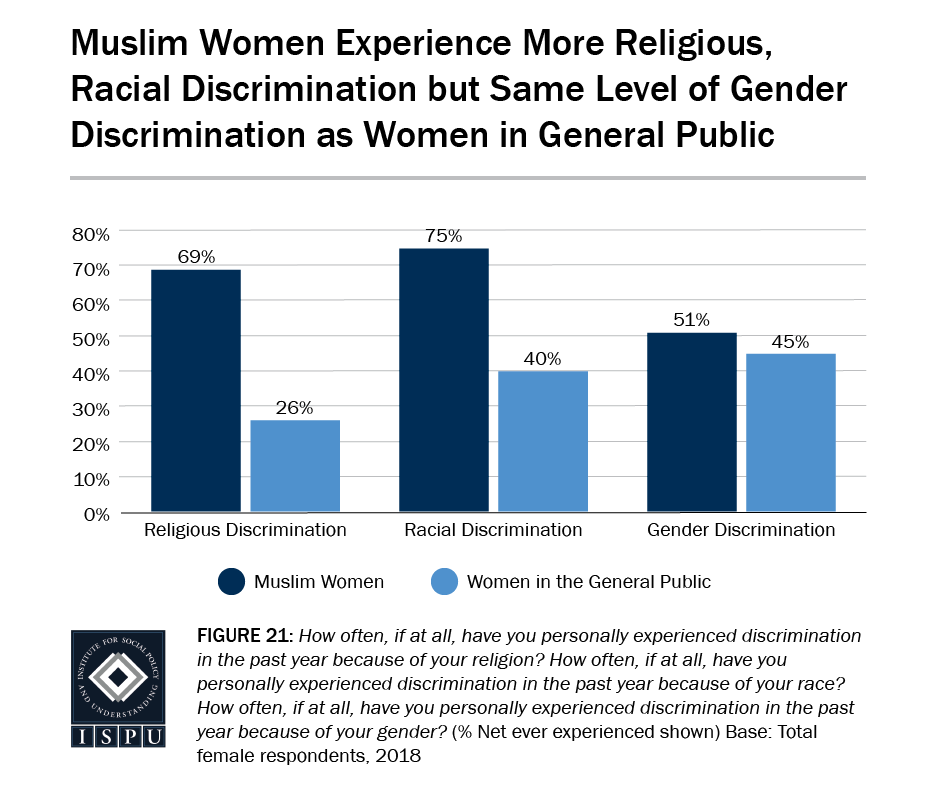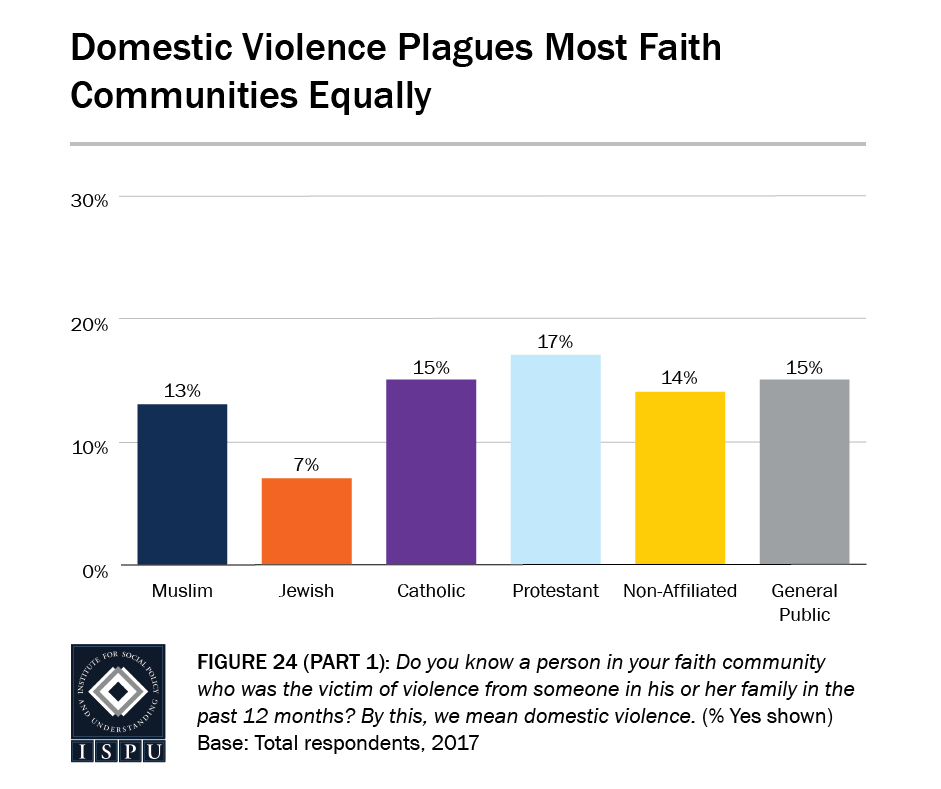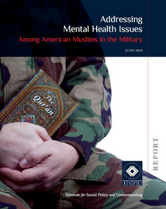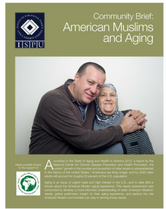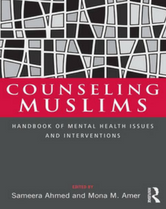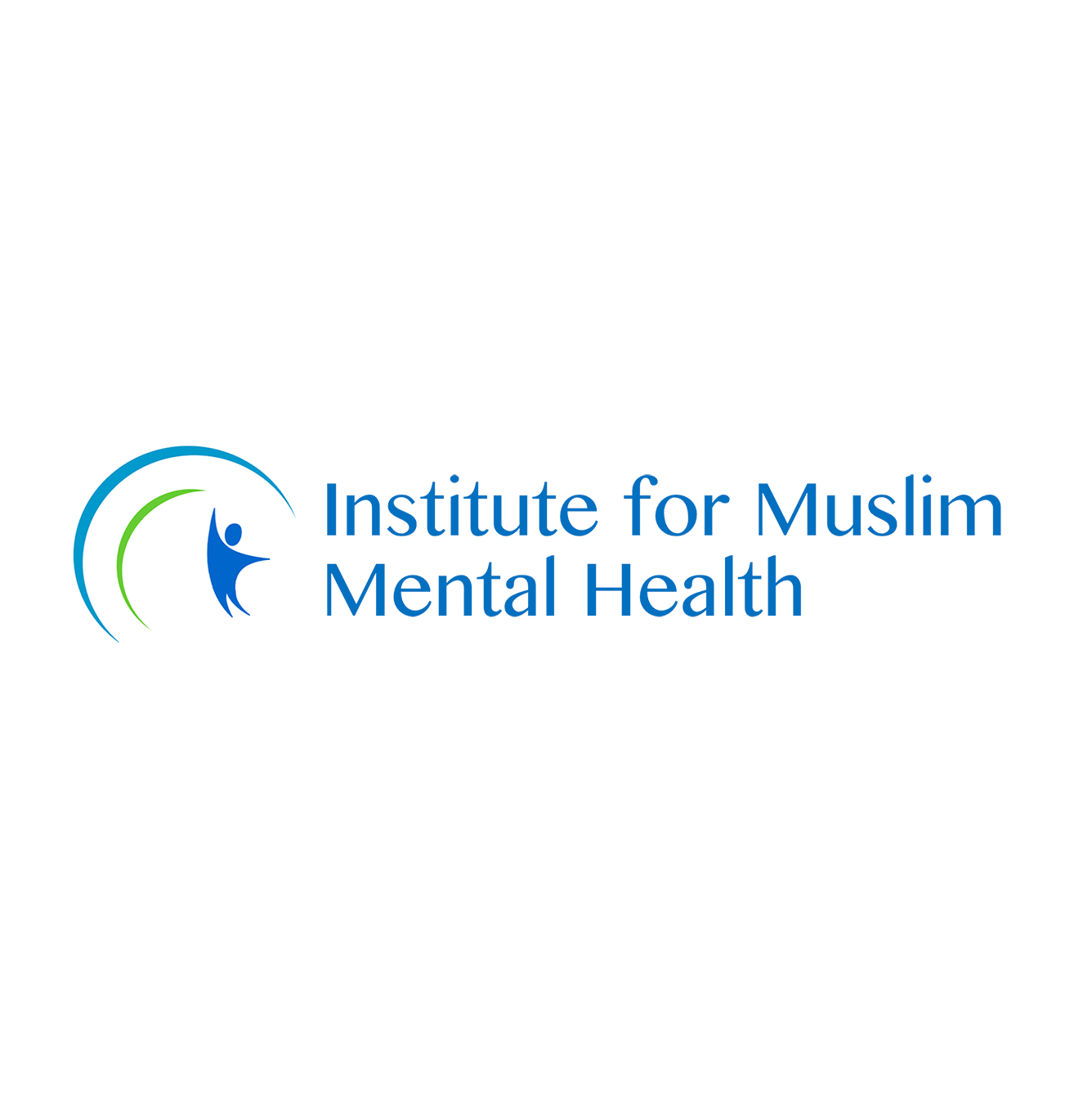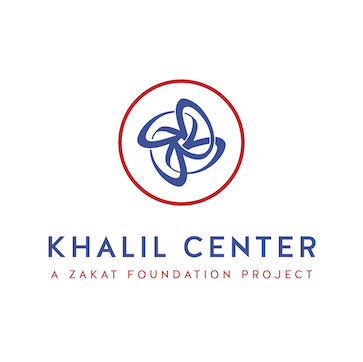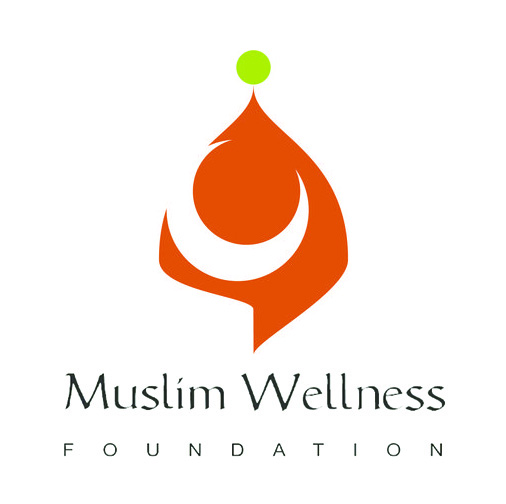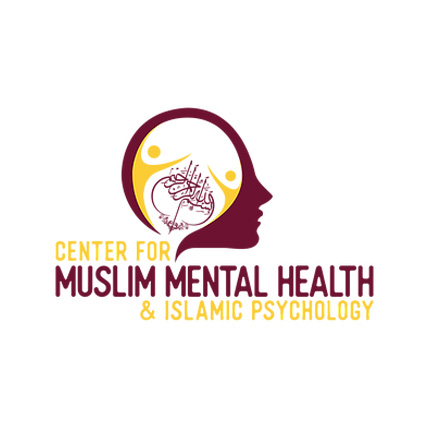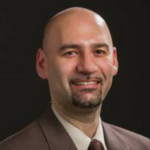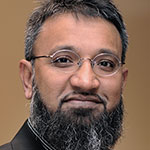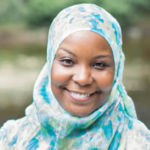A growing number of American Muslims encounter prejudice in their daily lives. Not surprisingly, they also increasingly make self-reports of emotional stress. While day-to-day pressures continue to affect American Muslims’ ability to thrive, good recommendations are available to face these challenges. This toolkit includes resources for individuals and mental health professionals to effectively address the unique mental health challenges that Muslims face. These challenges are not exclusive to adults. This toolkit also includes specific resources for addressing the needs of American Muslim children who face the added challenge of bullying from peers and adults, alike.
Mental Health Toolkit
Resources for Muslim Mental Healthcare Advocates
A growing number of American Muslims encounter prejudice in their daily lives. Not surprisingly, they also increasingly make self-reports of emotional stress. While day-to-day pressures continue to affect American Muslims’ ability to thrive, good recommendations are available to face these challenges. This toolkit includes resources for individuals and mental health professionals to effectively address the unique mental health challenges that Muslims face. These challenges are not exclusive to adults. This toolkit also includes specific resources for addressing the needs of American Muslim children who face the added challenge of bullying from peers and adults, alike.
Youth Mental Health
This webinar summarizes the recommendations from our report, Religious-Based Bullying: Insights on Research and Evidence-Based Best Practices from the National Interfaith Anti-Bullying Summit. The webinar was sponsored by ISPU, Islamic Networks Group (ING), American Muslim Health Professionals (AMHP), and Sikh Kid 2 Kid.
Religious-Based Bullying: Insights on Research and Evidence-Based Best Practices from the National Interfaith Anti-Bullying Summit
Given the prevalence rates and negative mental hea
05 February, 20212019 Survey of MSA West Student Members: Perseverance in the Face of Adversity
Muslim Student Associations are often an integral
02 July, 2019State of American Muslim Youth: Research & Recommendations
American Muslim youth are a heterogeneous group, w
11 February, 2015Young Adult American-Born Muslims and Mental Health: An Exploration of Attitudes, Challenges, and Needs
Despite the growing number of American Muslims in
31 December, 2014Addressing Foster Care and Mental Health
On any given day, there are more than 542,000 chil
01 October, 2005
.
Dealing with Bias + Bigotry
On January 24th, 2017, ISPU and ISNA co-hosted a webinar featuring ISPU Scholars Dr. Ben Herzig and Dr. Hamada Hamid along with mental health practitioner Kameelah Mu’Min Rashad that focused on “Post-Election American Muslim Self-Care.” Panelists discussed how Muslims can best practice self care, how parents can support their children when confronted with bigotry, and the effect that intersections of religion, race, gender, and pre-existing conditions can have on Muslims’ mental health.
Muslims Disproportionately Feel Negative Effect of Political Climate
This infographic highlights the stress placed on the American Muslim community as a result of the current political climate. It is important for individuals and mental health professionals to understand these external stresses as they seek to develop solutions to promote emotional well-being.
 |
Ben Herzig in The Islamic Monthly | January 8, 2017 |
American Muslims in the Age of Trump: The View from the Therapy Couch |
 |
Interview with Ben Herzig in Vox | March 8, 2017 |
“Bigotry complicates everything”: a psychologist on how prejudice harms Muslim patients’ mental health |
.
Mental Health of Muslim Healthcare Workers During COVID-19
To understand how American Muslim healthcare workers (HCWs) in the United States have been impacted by this stress, and how they have coped with it, this study surveyed nearly 700 American Muslim HCWs about one year into the pandemic. Results include the impact of the COVID-19 pandemic and religious and racial discrimination on mental health, as well as an investigation into “healthy” and “unhealthy” coping strategies.
This report was co-published in April of 2022 by the Institute for Social Policy and Understanding (ISPU) and the Stanford Muslim Mental Health & Islamic Psychology Lab. You can download and share the infographic that visually represents how American Muslim healthcare workers fared during COVID-19 and their coping strategies.
Suicide Attempts of Muslims Compared With Other Religious Groups in the US
A 2021 article in JAMA Psychiatry found that American Muslim adults have twice the rate of suicide attempts compared to other surveyed faith groups. The study this publication was based on included data from ISPU’s 2019 American Muslim Poll. Multiple ISPU scholars, including Dr. Rania Awaad, director of the Stanford Muslim Mental Health & Islamic Psychology Lab, and Dr. Hamada Hamid, co-founder of the Muslim Mental Health Institute, were involved in conducting and publishing the study, as well as ISPU Director of Research Dalia Mogahed.
A September 2021 webinar co-hosted by Maristan, Institute for Social Policy and Understanding (ISPU),and Institute of Muslim Mental Health (IMMH) featured study co-authors discussing this data and the impact it has on community conversations.
Dive Into the Data
The following graphs show mental health-related findings from our 2016–2019 American Muslim Polls.
DEMOGRAPHICS
ANXIETY + RESILIENCE
INTERNALIZED ISLAMOPHOBIA
RACISM
BULLYING + DISCRIMINATION
DOMESTIC VIOLENCE
Reports for Professionals
Addressing Mental Health Issues among American Muslims in the Military
The tragic shootings at the Fort Hood Army Base in
02 June, 2010Community Brief | American Muslims and Aging
Demographic shifts in the U.S. as well as globally
05 December, 2016Counseling Muslims: Handbook of Mental Health Issues and Interventions
The issues and interventions discussed in this boo
06 September, 2011Mental Health of Muslim Healthcare Workers During COVID-19
This study surveyed nearly 700 American Muslim HCW
22 April, 2022Spirituality in Mental Health Care: It’s past Time to Make Room
National surveys have consistently found that the
25 July, 2012Suicide Attempts of Muslims Compared With Other Religious Groups in the US
On July 21, 2021, an article in JAMA Psychiatry fo
21 July, 2021
.
Additional Resources
These resources may be helpful for Muslim mental health advocates, though ISPU does not claim responsibility for the content.
The Institute for Muslim Mental Health maintains a directory of Muslim mental health professionals. Find and connect with therapist or counselors using that directory.


